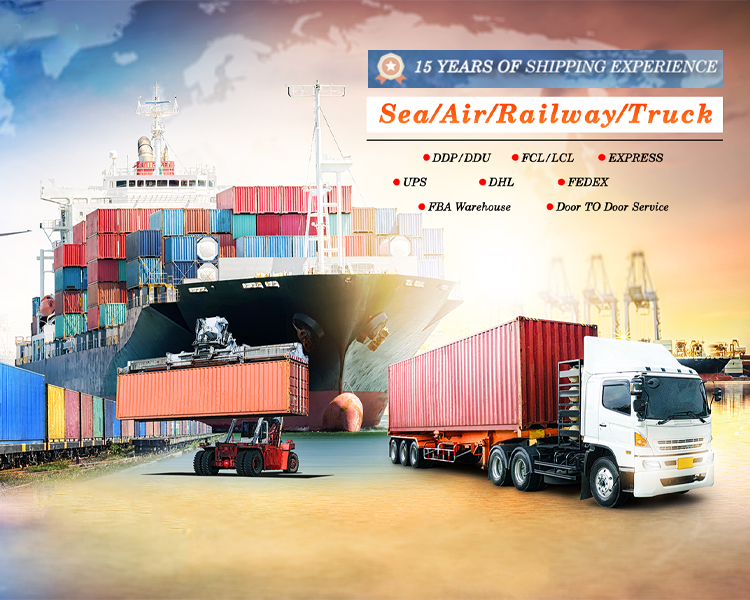sales@flying-trans.com
+86-15818568920
- All
- Product Name
- Product Keyword
- Product Model
- Product Summary
- Product Description
- Multi Field Search
Views: 0 Author: Site Editor Publish Time: 2025-04-28 Origin: Site











In today’s rapidly evolving global economy, the logistics sector plays a pivotal role in ensuring the seamless movement of goods across borders. As the demand for fast and efficient logistics services continues to grow, the emphasis on sustainable transportation becomes increasingly crucial. Shenzhen Flying International Freight Forwarder Co., Ltd., known as Flying International, is at the forefront of integrating sustainable practices into its logistics operations. This article explores essential tips for achieving sustainable transportation, drawing insights from industry trends and Flying International's innovative practices.
Sustainable transportation refers to the implementation of strategies and practices that minimize environmental impact while maintaining efficiency and cost-effectiveness in logistics operations. It encompasses the use of eco-friendly vehicles, optimization of routes, reduction of carbon emissions, and the adoption of digital technologies to enhance operational efficiency. As a leading logistics service provider, Flying International is dedicated to promoting sustainability in all aspects of its operations.
Flying International has established itself as a leader in the logistics industry by prioritizing sustainability. The company has implemented a range of initiatives aimed at reducing its carbon footprint and promoting environmentally friendly practices. By leveraging advanced technologies and fostering a culture of sustainability, Flying International is setting new standards for the logistics sector.
South American line
Australia Singapore line
North America line
Sea Shipping forwarding enterprise
Southeast Asia line
Freight Forwarder
One of the most effective ways to achieve sustainable transportation is by incorporating eco-friendly vehicles into logistics fleets. Flying International has invested significantly in electric and hybrid vehicles, which help reduce greenhouse gas emissions and reliance on fossil fuels. These vehicles not only contribute to a cleaner environment but also offer cost savings in terms of fuel efficiency and maintenance.

Route optimization is a critical component of sustainable logistics. By utilizing advanced algorithms and real-time data, Flying International can plan the most efficient routes for its deliveries. This not only reduces fuel consumption and emissions but also ensures timely deliveries, enhancing customer satisfaction. Efficient planning also involves consolidating shipments to maximize load capacity, further reducing the number of trips required.
Digital technologies have revolutionized the logistics industry, offering new opportunities for enhancing sustainability. Flying International employs cutting-edge software solutions for tracking shipments, managing inventory, and optimizing supply chain operations. These technologies enable the company to monitor and reduce energy consumption, streamline processes, and improve overall efficiency.
The logistics industry is witnessing a paradigm shift towards sustainability, driven by increasing consumer awareness and regulatory pressures. Companies are now compelled to adopt greener practices to remain competitive and meet the expectations of environmentally conscious consumers. Some of the key trends shaping the future of sustainable logistics include:
The circular economy model emphasizes the reduction of waste and the reuse of resources. In the logistics sector, this translates to practices such as reverse logistics, where products are returned for refurbishment or recycling. Flying International is actively exploring circular economy initiatives to minimize waste and promote resource efficiency.
Green warehousing involves the implementation of energy-efficient systems and sustainable building practices. Flying International is investing in green warehouses equipped with solar panels, energy-efficient lighting, and advanced climate control systems. These initiatives significantly reduce energy consumption and operational costs.
Collaboration is key to achieving sustainability goals in the logistics sector. Flying International collaborates with suppliers, customers, and industry partners to develop innovative solutions for reducing environmental impact. By working together, stakeholders can share best practices, pool resources, and drive collective action towards sustainability.
While the transition to sustainable transportation presents numerous opportunities, it also poses several challenges. The logistics industry must navigate issues such as high initial costs for eco-friendly technologies, regulatory compliance, and the need for continuous innovation. However, these challenges also present opportunities for growth and differentiation.
One of the primary challenges in adopting sustainable practices is the cost associated with new technologies and infrastructure. Flying International addresses this by focusing on long-term savings and return on investment. By demonstrating the financial benefits of sustainability initiatives, the company encourages stakeholders to embrace eco-friendly practices.
Regulatory requirements for reducing carbon emissions and promoting sustainability are becoming increasingly stringent. Flying International stays ahead of these regulations by proactively implementing sustainable practices and ensuring compliance. This not only mitigates legal risks but also enhances the company’s reputation as a responsible logistics provider.
The logistics industry is constantly evolving, and companies must remain adaptable to stay competitive. Flying International fosters a culture of innovation, encouraging employees to develop creative solutions for sustainability challenges. By embracing change and leveraging new technologies, the company continues to lead the way in sustainable logistics.
Sustainable transportation is not just a trend; it is a necessity for the future of logistics. Companies like Flying International are paving the way for a greener and more efficient logistics industry by implementing innovative practices and embracing sustainable technologies. As the demand for fast and reliable logistics services continues to grow, the emphasis on sustainability will only become more pronounced.
By following the tips and insights outlined in this article, logistics companies can enhance their sustainability efforts and contribute to a cleaner and more sustainable future. The journey towards sustainable transportation is challenging, but with the right strategies and a commitment to change, it is possible to achieve significant environmental and economic benefits.
As industry leaders, Flying International and other forward-thinking companies are setting the standard for sustainable logistics. By prioritizing eco-friendly practices, optimizing operations, and leveraging digital technologies, they are not only reducing their environmental impact but also driving innovation and growth in the logistics sector.
In conclusion, the path to sustainable transportation requires collaboration, innovation, and a commitment to continuous improvement. By embracing these principles, logistics companies can play a vital role in creating a more sustainable and prosperous future for all.